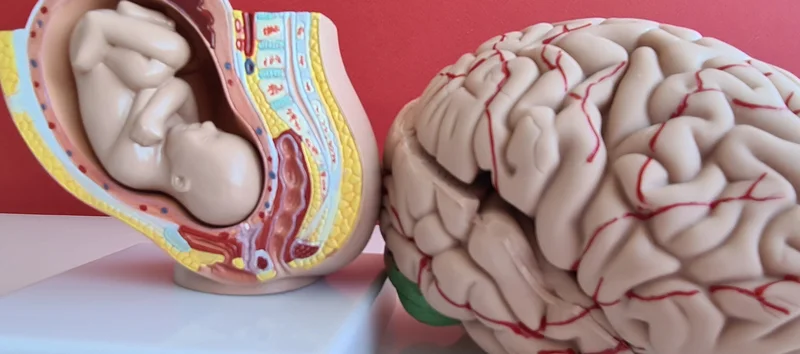
Long-term problems in children with FASDs may include psychiatric problems, gang and criminal behavior, poor socialization, unemployment, and incomplete education. The frequency, strength, and quantity of alcoholic drinks have an effect, as well as the timing of consumption. Drinking alcohol late in a pregnancy increases the likelihood of FAS.
Neurobehavioral Disorder Associated with Prenatal Alcohol Exposure (ND-PAE)
During early pregnancy, the fetus is already developing rapidly. Alcohol consumption could harm the developing fetus at any time during pregnancy — especially early on in the development process. Children born with this syndrome experience the symptoms throughout their entire lives. Some symptoms can be managed with treatment by a healthcare provider, but they won’t go away. Fetal alcohol spectrum disorder (FASD) is a medical condition caused by prenatal alcohol exposure. If you drank alcohol before you knew you were pregnant, stop drinking now and talk to your health care provider.
What are fetal alcohol spectrum disorders (FASD)?
However, the only way to prevent FAS is to avoid drinking beverages containing alcohol during pregnancy. Early diagnosis and early intervention significantly improve long-term outcomes for people with FASD. Your doctor may look for physical symptoms, such as a low birth weight and a small head. Doctors may look at behavioral symptoms, such as attention and coordination.
How early can you tell if your child has fetal alcohol syndrome?

It is best to speak with a doctor who specializes in FAS, such as a developmental pediatrician, clinical geneticist, or child psychologist. As a fetus’s liver is not fully formed, this organ cannot metabolize alcohol. As a result, when a fetus becomes exposed to alcohol, they absorb all of it. While drunken fetal syndrome every individual with FASD has a unique set of strengths and weaknesses, all people with FASD have some brain dysfunction as a result of prenatal alcohol exposure.
Does fetal alcohol syndrome (FAS) last into adulthood?

FAS is a long-term disability that drug addiction affects children from birth. It occurs when a fetus becomes exposed to alcohol during pregnancy. Early detection and treatment can help children learn vital skills and improve their chances of being able to live independently as adults. Prenatal alcohol exposure and central nervous system (CNS) involvement are factors common to the disorders encompassing FASD. Evidence of CNS involvement can be structural (e.g., small brain size, alterations in specific brain regions) or functional (e.g., cognitive and behavioral deficits, motor and coordination problems). One person might have only a few, while another person could experience all of them.
- There is no safe amount or type of alcoholic beverage, and no safe time to drink alcohol during pregnancy.
- If a child has learning and behaviour difficulties at school, there might be options for school disability support.
- When someone has fetal alcohol syndrome, they’re at the most severe end of what are known as fetal alcohol spectrum disorders (FASDs).
- In addition to the acute effects of withdrawal, babies often suffer the teratogenic (causing physical abnormalities) effects of alcohol.
- And other disorders, such as ADHD (attention-deficit/hyperactivity disorder) and Williams syndrome, have some symptoms like FAS.
- As such, there is no known safe amount of alcohol people can drink during pregnancy or while trying to get pregnant.
Understanding Fetal Alcohol Spectrum Disorders
Women who need help to stop drinking alcohol can talk to their health care provider about treatment options. There are a variety of treatments available for pregnant women, including behavioral treatment and mutual-support groups. Visit the NIAAA Alcohol Treatment Navigator® to learn more about evidence-based treatments for alcohol-related problems.
The alcohol crosses the placenta and enters the baby’s blood where it can damage the developing brain and other organs leading to an FASD. FASDs are 100% preventable if a woman does not drink alcohol during pregnancy. FASDs are a group of conditions that occur when fetuses have exposure to alcohol during pregnancy. In the United States, FASDs affect an estimated 1–5% of children in the first grade of school. But children with FASD can get treatment to learn and develop skills and improve their quality of life. Early identification of FASD is critical for the well-being of individuals affected by prenatal alcohol exposure and their families.

Fetal Alcohol Spectrum Disorders (FASD)

If you need information and support, a good place to start is NOFASD Australia. It’s important to understand what your family is entitled to so you can make the right choices when choosing a school for your child. You can also contact the Kinship advice team for free, non-judgmental advice and information if you live in England or Wales. There are a range of organisations and groups that support people with FASD and their carers.
Partial fetal Alcohol Syndrome (pFAS)
- Long-term problems in children with FASDs may include psychiatric problems, gang and criminal behavior, poor socialization, unemployment, and incomplete education.
- It’s important to understand what your family is entitled to so you can make the right choices when choosing a school for your child.
- Not every pregnancy is planned, and many women drink alcohol before they realise they’re pregnant.
This could be from a doctor, an addiction support service, or a mental health professional. However, this requires that a mother stop using alcohol before becoming pregnant. Because no amount of alcohol is proven safe, women should stop drinking immediately if pregnancy is suspected. It’s also recommended that you not drink alcohol if you’re sexually active and not using effective birth control. It can take four to six weeks before you know you’re pregnant.

Fetal alcohol spectrum disorders (FASDs) are a group of conditions that can occur in a person exposed to alcohol before birth. These conditions can affect each person in different ways and can range from mild to severe. People with FASDs can have lifelong effects, including problems with behavior and learning as well as physical problems. FASDs are preventable if a developing baby is not exposed to alcohol. When a woman consumes alcohol while pregnant, her fetus is exposed directly to alcohol through her bloodstream.







